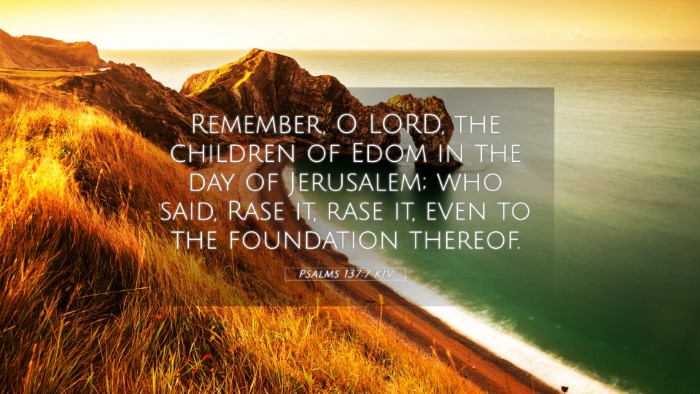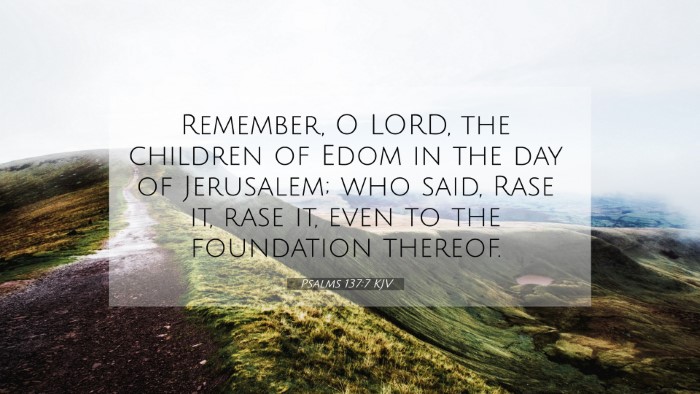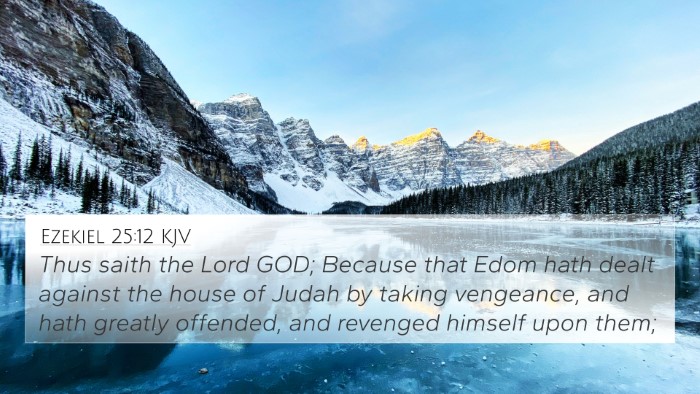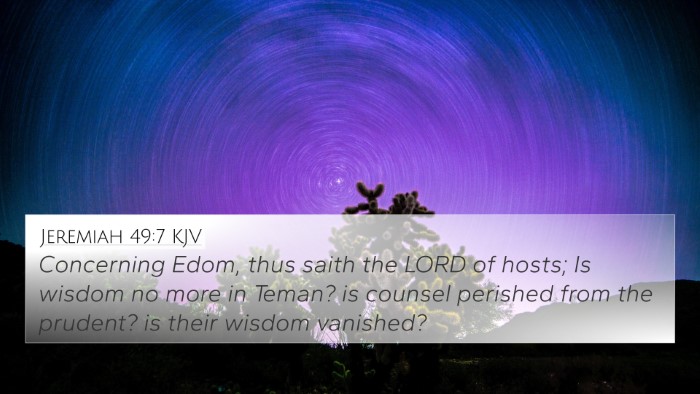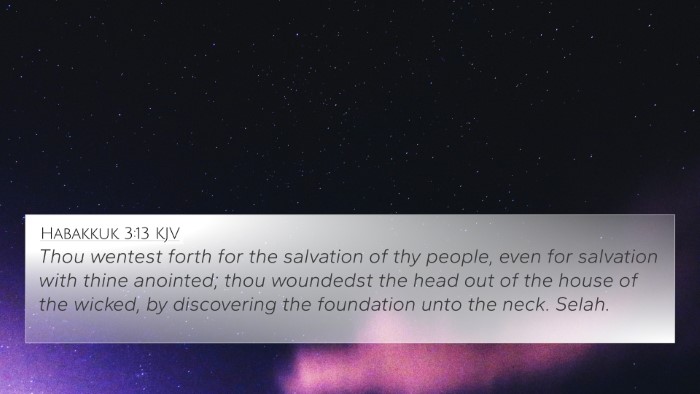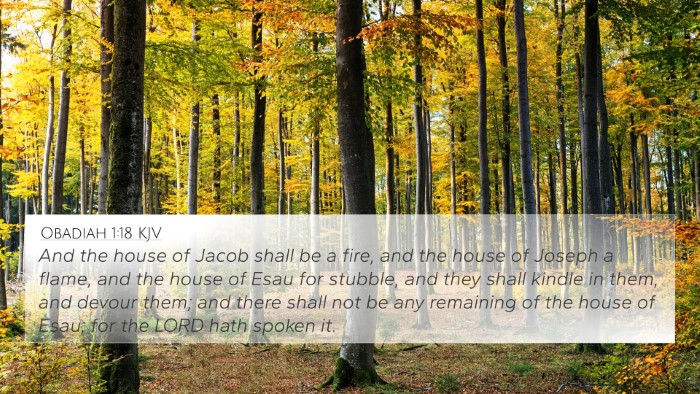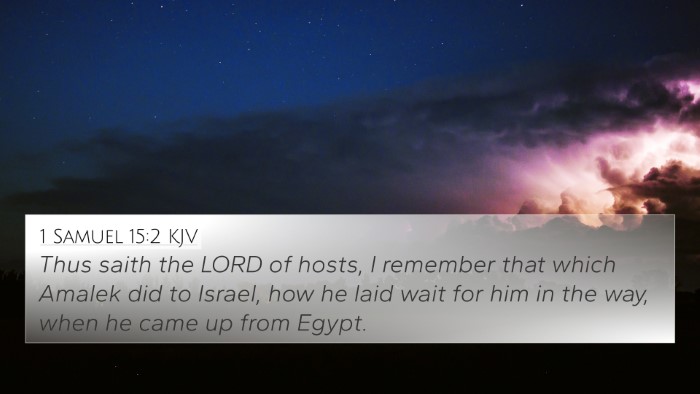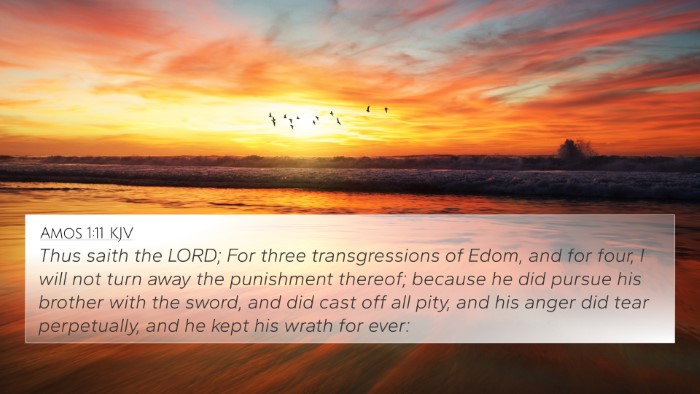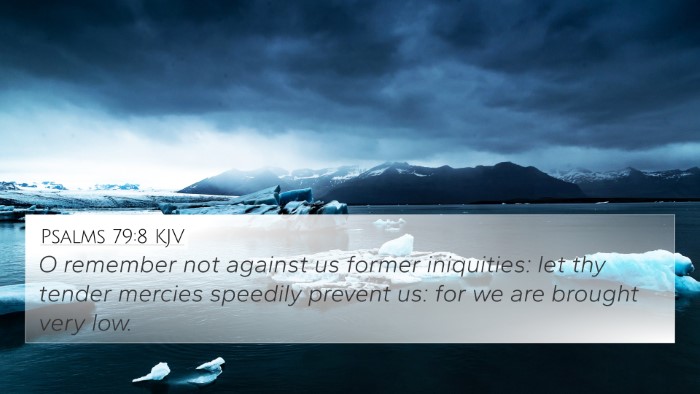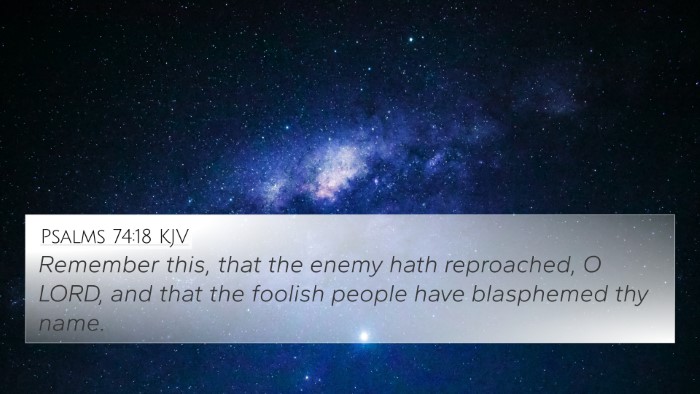Psalms 137:7 Explained
The verse Psalms 137:7 is historically significant as it reflects the sorrow of the Israelites during their Babylonian exile. The verse reads:
"Remember, O Lord, against the sons of Edom, the day of Jerusalem; who said, 'Raze it, raze it! To its very foundation!'"
Meaning and Interpretation
This poignant verse serves as a plea and a reminder of the anguish faced by the Israelites. Here we explore insights from notable public domain commentaries to enhance our understanding of its meaning.
Context of the Verse
In the context of Psalms 137, the Israelites find themselves in Babylon, longing for their homeland after the destruction of Jerusalem. This chapter expresses not only mourning but also a cry for justice against those who reveled in their misfortune.
Commentary Insights
-
Matthew Henry:
Henry notes that this verse highlights the historical animosity between the Israelites and Edomites, who, during the fall of Jerusalem, called for its complete destruction. This emphasizes the cruelty witnessed, stirring a collective memory among the captives.
-
Albert Barnes:
Barnes points out that the plea to God for remembrance sheds light on the desire for divine retribution against Edom. The Israelites’ supplication reflects their pain and desire for God to acknowledge their suffering.
-
Adam Clarke:
Clarke elaborates on the Edomites’ role during the siege, explaining how they mocked the Israelites in their time of despair. The call to remember signifies a yearning for justice and a reminder of God’s providence in punishing those who celebrate the fall of His people.
Related Bible Verses
Understanding this verse benefits from cross-referencing it with other significant scriptures which echo similar themes of suffering, justice, and divine remembrance:
- Lamentations 3:34-36: These verses talk about God's judgment, justice, and the importance of uprightness.
- Obadiah 1:10-14: This passage directly addresses the fate of Edom, emphasizing the consequences of their actions against Israel.
- Psalm 79:1-5: Here, the psalmist laments over the destruction of Jerusalem, invoking God’s intervention for justice.
- Ezekiel 35:5: God proclaims judgment on Edom for its hostility against Israel, connecting the themes of divine justice and retribution.
- Jeremiah 49:7-22: This text also deals with the burden against Edom, indicating God’s response to their wickedness.
- Matthew 5:44: A New Testament perspective urging love for enemies contrasts the desire for vengeance in Psalms.
- Romans 12:19: Paul teaches not to avenge ourselves, aligning with the later understanding of turning to God for justice.
Cross-Referencing Biblical Texts
In exploring Psalms 137:7, we see significant connections between Old and New Testament verses that reflect on suffering, justice, and the Israelites' desire for divine support. This thematic approach is critical for comprehensive Bible verse analysis.
Comparative Analysis
Through comparative Bible verse analysis, we can observe how the tone of lamentation in the Old Testament transitions into the New Testament’s call for grace and forgiveness, showcasing an evolution of understanding divine justice.
Tools for Bible Cross-Referencing
Using a Bible concordance can facilitate a deeper understanding of these connections and provide a Bible cross-reference guide for thorough cross-reference Bible study. Here are some methods to engage in effective cross-referencing:
- Utilize a Bible reference resource to find parallel texts.
- Incorporate a Bible chain reference method for thematic studies.
- Employ comprehensive Bible cross-reference materials available in print or digital form.
Conclusion
Psalms 137:7 serves not only as a historical account of mourning and lament but also as a profound request for justice. By understanding its context and leveraging tools for Bible cross-referencing, we can appreciate the depth of its meaning and its connection to other scriptural themes. The emotional weight of this verse encourages believers to seek divine justice while reflecting upon their trials with an understanding of God's ultimate sovereignty.

